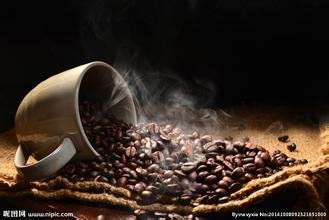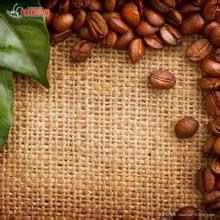Introduction to the characteristics of roasting degree of Coffee processing methods in Nicaragua Los Congo Manor
High-quality Nicaraguan coffee, grown in the north and middle of the country. Coffee is a pillar industry in Nicaragua, producing nearly 100,000 tons of coffee beans every year. Many people who have tasted Nicaraguan coffee usually think that it is no different from Salvadoran coffee or Honduran coffee. It is full-bodied, smooth and delicate, with a slightly bitter finish, like a faint taste in a wine.
In many countries, coffee production will be seriously affected for political reasons. Nicaraguan coffee industry is no exception. The 1979 revolution forced coffee planters to flee to Miami. A period of indecision followed, when the government considered whether to redistribute land, including many plantations, which led to a shortage of coffee and a decline in production, from more than 1 million bags in the early 1970s to less than 600000 bags in 1990. Now the Government has opened up the coffee industry and private owners have taken control of the market. The coffee is produced in Sinotega and New Segovia in Matagalpa. It has moderate acidity, delicious aroma and is very lovely. Nicaraguan coffee is rich in purity and fragrance. The right balance of acidity and bitterness is regarded as top grade in the eyes of international coffee connoisseurs.
However, Nicaragua is one of the poorest and backward countries in the world, with backward production methods and management concepts, coupled with the freedom of the Latin American people, poor coffee production and shipping quality, or no sense of time. Therefore, Cafe Nor has a Danish professional manager, Fedfrek, based on the farm, living with coffee farmers to produce coffee, ensuring the quality of coffee beans and shipping them on schedule, so that people can enjoy the high quality selection of Nicaraguan top coffee Nicaragua is one of the major coffee producing countries in the world, producing high quality coffee. The well-known coffee chain Starbucks also has cooperative coffee farmers in Nepal. Nicaragua has a unique environment, which is located in central Central America, bordered by the Pacific Ocean to the west and the Caribbean Sea to the east. The highlands in the north and the coastal plains in the east are part of the Central American volcanic belt. The eastern plain is high-temperature and rainy, with a tropical maritime climate. The fertile volcanic soil and hidden planting methods provide a good growing environment for coffee. Cafe Nor is a producer and supplier of raw beans of coffee from Central America and Nicaragua. Our mission is to introduce Nepal's best coffee to coffee lovers all over the world, especially more and more Chinese coffee lovers like other coffee producing countries. Nicaragua has a unique geographical advantage. It is bordered by the Pacific Ocean to the west, the Caribbean Sea to the east, the highlands in the north and the coastal plain in the east. It is part of the Central American volcanic belt and belongs to a tropical maritime climate.
The best Nicaraguan coffee trees grow in the north and middle of the country, especially those from Matagalpa, Sinotega and New Segovia. Nicaraguan coffee is rich in aroma, smooth and delicate, with a slightly bitter finish. It's best to drink cold water before tasting it. The tannins in Nicaraguan coffee can easily change during cooling, making the taste sour, so you must taste it while it is hot.

Important Notice :
前街咖啡 FrontStreet Coffee has moved to new addredd:
FrontStreet Coffee Address: 315,Donghua East Road,GuangZhou
Tel:020 38364473
- Prev

Description of Coffee Flavor of Joy Manor in Nicaragua introduction of boutique coffee beans
Nicaragua has a low flavor, chocolate, caramel sweetness, obvious almond flavor and bright sour taste, which is different from the rising tone of bright fruit acid in Central America. The coffee planting ecology of Nicaragua has a unique environment, which is full of fertile volcanic soil, coupled with shade planting methods, has established a good growth physique, so that Nicaraguan beans are not only rich in mellow, but also
- Next

Introduction to slightly sour El Mercedes Manor Coffee Variety characteristics and Flavor description
Salvadoran coffee ranks side by side with Mexico and Guatemala as the producers of Asa and Merdo, and is fighting for the top one or two places in China and the United States with other countries. The highlands of origin are large coffee beans of all sizes, which are fragrant and mild in taste. Like Guatemala and Costa Rica, coffee in El Salvador is graded according to altitude, and the higher the altitude, the better the coffee
Related
- Does Rose Summer choose Blue, Green or Red? Detailed explanation of Rose Summer Coffee plots and Classification in Panamanian Jade Manor
- What is the difference between the origin, producing area, processing plant, cooperative and manor of coffee beans?
- How fine does the espresso powder fit? how to grind the espresso?
- Sca coffee roasting degree color card coffee roasting degree 8 roasting color values what do you mean?
- The practice of lattes: how to make lattes at home
- Introduction to Indonesian Fine Coffee beans-- Java Coffee producing area of Indonesian Arabica Coffee
- How much will the flavor of light and medium roasted rose summer be expressed? What baking level is rose summer suitable for?
- Introduction to the characteristics of washing, sun-drying or wet-planing coffee commonly used in Mantenin, Indonesia
- Price characteristics of Arabica Coffee Bean Starbucks introduction to Manning Coffee Bean Taste producing area Variety Manor
- What is the authentic Yega flavor? What are the flavor characteristics of the really excellent Yejasuffi coffee beans?

